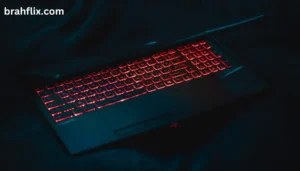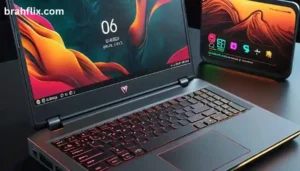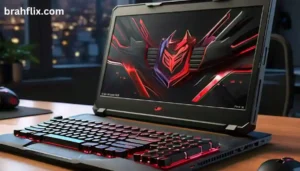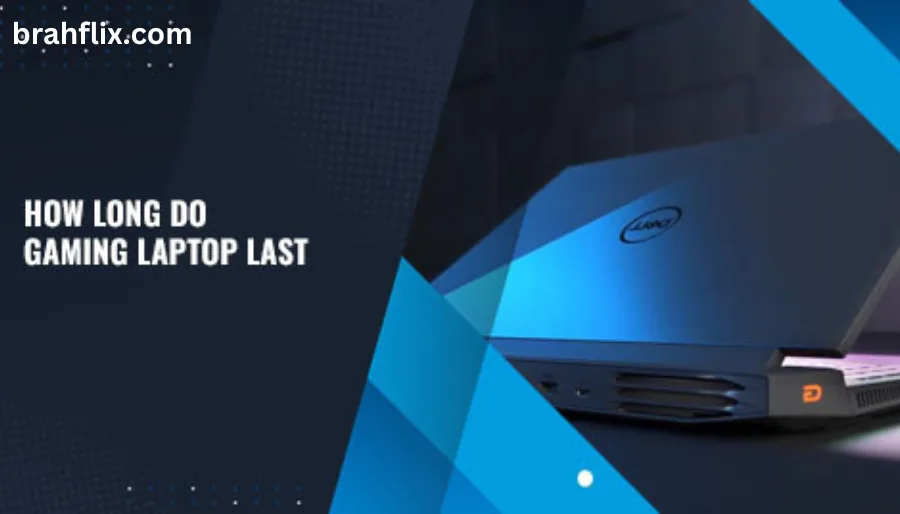Introduction
When investing in a gaming laptop, a common concern for many is, “How long does a gaming laptop last?” The lifespan of these high-performance machines can significantly impact your gaming experience and financial investment. In this comprehensive guide, we’ll explore the factors affecting the longevity of gaming laptops, provide practical maintenance tips, and examine how technology and usage patterns influence durability.
Key Takeaways:
- Gaming laptop lifespan depends on usage, maintenance, and hardware quality.
- Regular maintenance can extend the life of your laptop.
- Understanding hardware components and their wear and tear is crucial.
- Upgrades and repairs can prolong the effective use of a gaming laptop.
1. Understanding Gaming Laptop Lifespan
A gaming laptop typically has a lifespan of 3 to 5 years. However, this can vary based on several factors:
a. Hardware Quality: Higher-end components generally last longer. Premium CPUs, GPUs, and RAM are built to endure intense usage.
b. Usage Patterns: Heavy gaming and multitasking can strain the system, potentially reducing its effective lifespan.
c. Maintenance: Regular cleaning and timely updates can enhance durability.
d. Technological Advancements: Rapid advancements in gaming technology might render older models obsolete before they physically wear out.
Statistical Insight: According to a study by TechRadar, gamers who invest in high-end laptops often experience a 20% longer lifespan compared to those using mid-range models.
2. Key Components Affecting Longevity
Understanding the role of each component helps in determining how long a gaming laptop will last. Here are the primary components:
a. Central Processing Unit (CPU): The CPU handles all the instructions from programs. Frequent heavy use can cause wear, but high-quality CPUs can last longer with proper cooling.
b. Graphics Processing Unit (GPU): Crucial for gaming performance, the GPU can be a major factor in longevity. Overclocking and high temperatures can reduce its lifespan.
c. Memory (RAM): RAM degradation over time can affect performance. Upgrading RAM might be necessary as games and applications become more demanding.
d. Storage: Solid State Drives (SSDs) are generally more durable than traditional Hard Disk Drives (HDDs). However, SSDs have limited write cycles.
e. Battery: Gaming laptops often have shorter battery lives compared to non-gaming laptops. Battery degradation is a common issue and can affect overall usability.
3. Signs Your Gaming Laptop Needs Maintenance
Regular maintenance can prevent early failure. Watch for these signs:
a. Overheating: If your laptop frequently overheats, it could indicate poor cooling or dust buildup. Overheating can shorten the lifespan of internal components.
b. Slow Performance: A noticeable decrease in performance may be due to aging hardware or software issues.
c. Battery Issues: If your battery life drops significantly or if it won’t hold a charge, it might need replacement.
d. Strange Noises: Unusual noises from fans or hard drives can signal mechanical issues.
Tips: Regularly clean the cooling vents and update drivers to maintain performance.
4. How to Extend the Life of Your Gaming Laptop
Extending the life of your gaming laptop involves proper care and proactive measures:
a. Regular Cleaning: Dust buildup can lead to overheating. Use compressed air to clean vents and fans.
b. Cooling Pads: Invest in a cooling pad to help manage temperatures during intense gaming sessions.
c. Software Maintenance: Keep your operating system and drivers up to date. Regularly run antivirus scans to prevent malware that can affect performance.
d. Power Management: Adjust power settings to optimize performance and extend battery life.
e. Avoid Overclocking: While overclocking can boost performance, it can also increase wear on components.
Recommendation: According to Laptop Mag, using a cooling pad can reduce laptop temperatures by up to 20%, which helps extend the lifespan of internal components.
5. The Impact of Gaming and Usage Patterns
Your gaming habits play a significant role in how long your laptop will last:
a. Frequency of Use: Frequent gaming sessions put more strain on the laptop, potentially leading to faster wear.
b. Types of Games: Playing graphically intense games can push the hardware to its limits, affecting longevity.
c. Multitasking: Running multiple applications simultaneously can stress the CPU and RAM.
d. Environmental Conditions: Using your laptop in extreme temperatures or humid environments can cause hardware issues.
Statistics: Statista reports that high-end gaming laptops are used for an average of 4 hours per day, which is 50% more than non-gaming laptops.
6. Upgrading vs. Replacing Your Gaming Laptop
a. Upgrading Components: Replacing or upgrading components like the GPU, RAM, or storage can extend your laptop’s lifespan. This approach can be more cost-effective than buying a new laptop.
b. Signs You Need a Replacement: If repairs or upgrades become frequent and costly, it might be time to invest in a new laptop.
c. Cost-Benefit Analysis: Compare the cost of upgrades with the price of a new laptop. Sometimes, investing in a new model offers better long-term value.
Quote: “Upgrading a gaming laptop can be a wise choice, but it’s essential to evaluate if the cost outweighs the benefits,” says James H., Tech Analyst.
7. Warranty and Support Considerations
a. Manufacturer Warranty: Most gaming laptops come with a warranty that covers defects and certain types of damage. Understanding the warranty terms can help you decide whether to repair or replace your laptop.
Understanding the warranty terms can help you decide whether to repair or replace your laptop.
b. Extended Warranties: Consider purchasing an extended warranty for additional coverage, especially for high-end models.
c. Support Services: Reliable customer support can help resolve issues that arise during the warranty period. Check reviews and ratings before purchasing.
Statistics: Consumer Reports notes that laptops with extended warranties have a 15% higher customer satisfaction rate compared to those without.
8. Technological Advancements and Their Impact
The rapid pace of technological advancements can affect how long your gaming laptop remains viable:
a. Newer Generations of Hardware: Newer CPUs and GPUs are released regularly, which may render older models less capable of handling the latest games.
b. Software Requirements: Games and applications are constantly updated to take advantage of newer hardware features.
c. Market Trends: Keeping up with market trends can help you make informed decisions about upgrades and replacements.
Statistics: According to Gartner, technology upgrades and new releases occur every 18-24 months, influencing the effective lifespan of laptops.
9. Best Practices for Gaming Laptop Maintenance
Maintaining your gaming laptop involves several best practices:
a. Keep Software Updated: Regular updates ensure your system runs smoothly and securely.
b. Monitor Temperature: Use software tools to monitor the temperature of your CPU and GPU.
c. Backup Data: Regularly back up your data to avoid loss in case of hardware failure.
d. Use Surge Protectors: Protect your laptop from power surges that can cause damage.
Recommendation: Tom’s Hardware suggests using temperature monitoring tools like HWMonitor to keep track of your laptop’s thermal status.
Frequently Asked Questions
1. How often should I clean my gaming laptop?
Regular cleaning every 3-6 months is recommended to prevent dust buildup and overheating.
2. What is the average lifespan of a gaming laptop battery?
The average lifespan of a gaming laptop battery is 1-2 years, depending on usage and maintenance.
3. Can upgrading RAM extend the life of my gaming laptop?
Yes, upgrading RAM can improve performance and extend the usability of your laptop, especially if your current RAM is insufficient for newer games.
4. How can I tell if my gaming laptop is overheating?
Signs of overheating include frequent system crashes, reduced performance, and unusually high fan noise. Use temperature monitoring software to check internal temperatures.
5. When should I consider replacing my gaming laptop?
Consider replacing your laptop if it frequently fails to meet gaming requirements, if repairs are cost-prohibitive, or if it becomes obsolete compared to current models.
Conclusion
In summary, the longevity of a gaming laptop depends on various factors, including hardware quality, usage patterns, and maintenance. By understanding these elements and following best practices, you can maximize the lifespan of your gaming laptop. Regular updates, upgrades, and proper care are essential for ensuring optimal performance over time.
Have you experienced issues with your gaming laptop’s lifespan? Share your experiences in the comments below and check out our other blog posts for more tips and advice on tech maintenance and upgrades.


